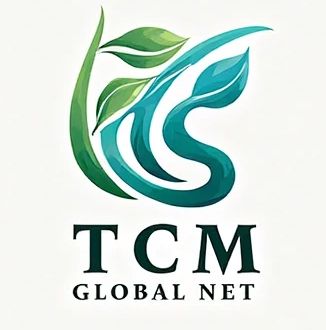引言
因为女性面临的压力很多,加上情志不舒,生孩子等带来的身体亏耗,多引发各种妇科问题。
大人的案例恢复自然是没有小孩子恢复得快。往往跟大人的体质、作息和饮食有密切关系,我所记录的案例全都是取自真实案例,没有丝毫修饰,有的治疗周期比较长,但是这应该才是客观的临床案例。
因为虚也有不同程度的虚,特别虚的人,身体臓腑都亏虚的厉害,想要一下恢复是不现实的。
患者要对自己体质足够了解,才能有足够的耐心去直面问题,才能真正调理得好。
中医可以做到很快见到疗效,但前提就是患者本身体质不错。
我们看网上的文章或者视频,不少都是在非常短的时间内有多么明显的效果,我从来不否认这些案例的真实性,但客观来说,这样的案例毕竟是少数。因为现在的人体质普遍都虚。
如果你体质好,重病也恢复快。体质差,轻病也好得慢。这才是世间常理。
我们找医生治病或调理,不能把身体恢复当做一种神话。不要把“理应要好了啊”成为阻碍你继续恢复的“绊脚石”。
当然,作为医者,我一直不忘追求诊疗技术不断提升,决不能因为有些疾病疗程时间长而觉得自己不需要进步了。
一、虚人调理需”小火慢炖”:36岁女性的2年康复之路
36岁的小林(化名)因2022年流产术后气血受损,叠加长期冷饮习惯,2023年起出现月经量少、色黯黑等问题。初诊时,其舌淡苔白、脉沉细,属典型的气血两虚兼阳虚。中医认为,流产导致冲任损伤,冷饮直中胞宫,寒凝血瘀,需以黄芪、肉桂、菟丝子等温补脾肾,辅以鸡血藤、枸杞养血活血。
【初诊开方】黄芪 50g 麸炒苍术 15g 法半夏 15g 姜厚朴 20g 茯苓30g 酒白芍 20g 鸡血藤 30g 枸杞子 15g 肉桂 5g 黑顺片 xxg 盐补骨脂 30g 盐菟丝子30g 5剂(细则略)
调理关键点:
- 疗程与体质挂钩
- 患者因流产损伤气血,加之平素喜冷饮,寒邪直中胞宫,致气血运行不畅,故而经量少、色黯黑。气血不足,不能濡养心神,故睡眠欠佳;阴津不足,引发口干欲饮。经前气血下注胞宫,本身气血已虚,加上那段时间做了大面积的刮痧理疗,更显神疲乏力、懒言。
- 虚证恢复需遵循”损者益之”原则,如姜惠中教授强调”补肾填精需循序渐进”,小林连续2个月汤剂调理后,改用膏方巩固,体现”缓补”思路。
- 体质差者如案例中患者,感冒、饮食失误(如喝凉水)会直接导致疗效反复,需长期跟踪。
- 生活方式的”隐形药方”
- 忌口:冷饮伤脾阳,加重气血生化不足,如网页7指出”痰湿型月经量少忌甜腻”。
- 保暖:三焦为气血通道,寒邪入侵会阻断经血运行,需注意腰腹、足部保暖。
- 医患信任的基石
- 患者8月月经量增多时,恰因膏方服用量达标;9月减量则因未坚持,印证网页5观点:”疗程未完成时,疗效波动属正常现象”。
二、中医调理月经量少的4大实战策略
| 证型 | 典型症状 | 调理方案 | 案例参考 |
|---|---|---|---|
| 气血两虚 | 经量少+乏力+头晕 | 黄芪+当归+鸡血藤补气养血,配合膏方长期调养15 | 小林案例 |
| 肾阳不足 | 经色淡+腰酸+夜尿多 | 菟丝子+巴戟天+紫河车温肾阳,如网页5用鹿茸片填精补髓 | 网页5案例 |
| 血瘀痰阻 | 经血黑+有血块+小腹胀痛 | 桃仁+红花+香附活血化瘀,配合通胞调经合剂(网页3验方) | 网页3案例 |
| 脾虚湿盛 | 经量少+肥胖+白带多 | 苍术+茯苓+薏苡仁健脾祛湿,如网页7三豆粥食疗方案 | 网页7建议 |
三、宝妈必看:3个在家调理月经的”懒人招式”
- 食疗方
- 大枣龙眼粥:大枣5颗+龙眼肉10g+粳米100g,补气血、安神(适合血虚型)。
- 乌贼鱼炖鸡:乌贼鱼200g+鸡肉150g+枸杞15g,每周2次,补肾养血。
- 穴位按摩
- 三阴交(内踝尖上3寸):每天按揉10分钟,调理月经周期。
- 足三里(膝盖下3寸):增强脾胃运化功能,促进气血生成。
- 避坑指南
- ❌ 激素类药物:短期见效但伤肝肾(如网页5批判的”活血破血法”)。
- ❌ 盲目刮痧:虚人阳气不足时刮痧会加重疲劳(如小林初诊时刮痧致症状恶化)。
四、中医爱好者必读:治疗月经量少的3个认知误区
- 误区一:月经量少=早衰
- 真相:经量减少可能是气血不足或痰湿阻滞,需辨证施治。如网页3案例通过3个月调理成功怀孕。
- 误区二:轻症可自愈
- 真相:现代女性普遍存在”隐形亏虚”,如网页5指出”流产/熬夜/压力”是三大主因,需主动干预。
- 误区三:冬季不宜进补
- 真相:冬季闭藏为养生要义,可服用膏方(如小林案例)或当归生姜羊肉汤温补
气血亏虚不是一朝一夕形成的,就像存钱,不是一下子就能存够,亏空也不是瞬间就出现的。
气血的损耗是慢慢积累的结果,所以恢复起来也只能慢慢来,千万别着急想着一下就补好。比如有的宝妈可能长期劳累、熬夜带娃或工作,或饮食不规律,或情志内耗,这些都会损耗气血。
要是想着吃几剂补药、几顿滋补品就把气血补满,那是不现实的。恢复气血需要长期坚持良好的生活方式,比如正确的调理方案、规律作息、合理饮食,心情放松才能看到效果。
很多时候,病症本身并不难治,可要是不坚持正确治疗,就容易拖成大问题。
调理月经量少,很多都是整体的气血都不足,其实平时应该也有感觉其他各方面都不会太好,若感觉没立刻见效就放弃了是很可惜的。
就像浇花,不能刚浇一次水,没看到花开就不再浇了。坚持按疗程治疗,配合健康生活习惯,身体才能慢慢好起来。
咱们再讲讲这位患者的情况,她中间有过2个月经量又变少,这是我们需要注意的地方:9月份小林月经量有变少,自己也提到喝了凉水。凉水对身体的影响可不小。
人体阳气就像小太阳,维持着身体的正常运转。常喝凉水,会加重阳虚,阳气不足,气血就没办法很好地循环流动,也难以生成。所以我们日常一定要尽量喝温热的水,夏天也是。
2月份那次经量少,那段时间感冒严重。对于本身气血虚的人,感冒确实会影响月经。寒气一旦直入三焦,会打乱全身气血的运行。三焦是人体气血和水液运行的通道,寒气入侵,通道受阻,气血就没法正常滋养身体各个部位,月经自然也会受影响。所以伙伴们平时一定要注意保暖,增强体质,预防感冒,守护好自己的气血。
写给中医爱好者的学习心得
调理月经病,要按疗程调理,尤其第一次开始看诊,如果患者亏虚得很厉害,一定要强调两点:
1、找找之前亏虚的原因,是因为生孩子还是流产?是长期服西药还是有不良的生活习惯?是情志抑郁还是家庭内耗。你不帮对方找到她的漏处,及时补漏,可能一直服药一直都不会有效果。最后就是患者和医生都没有信心了。
2、提前说明疗程,不要给患者打包票,因为患者一定要相信你说的话,一旦没有兑现,患者马上就没有信心了。
现在很多调理经量少的方法多是急功近利的方法,要么上激素,要么活血破血。
所以让患者原本亏虚的气血雪上加霜。往往就是服药后马上来了,但下个月又不正常了。
或者好了这头,又坏了那头。
治疗虚人,就像《道德经》里说的:若烹小鲜。
一定是谨小慎微,保养好身体的底子,逐步的补益气血,同时叮嘱患者一定要注意日常的忌口养生等,这样来调理,不单单调理的是月经,其实整个人都调理了,最终来看,其实慢也是快。


发表回复